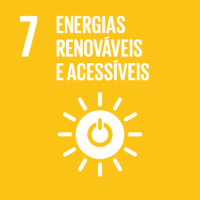Ciência_Iscte
Publicações
Descrição Detalhada da Publicação
Título Revista
Environment and Development Economics
Ano (publicação definitiva)
2020
Língua
Inglês
País
Reino Unido
Mais Informação
Web of Science®
Scopus
Google Scholar
Esta publicação não está indexada no Overton
Abstract/Resumo
Reliance of modern economic activities on the use of energy, most of which still comes from non-renewable sources, provokes concerns regarding the most efficient utilization of energy inputs in production. While most theory expects directed technological change to be biased towards the non-renewable input, there is rare macro-level evidence that technological change is actually biased towards energy rather than other main inputs. To fill this gap, we apply stochastic frontier analysis to country data regarding output produced with capital, labor and energy, and estimate a set of indicators for technological change.Findings show that technological change is biased the most towards energy in general. In particular, although different groups of countries exhibit various patterns, there is strong evidence that technological change favors energy more than labor.This is in line with the theoretical expectation that technological change ought to be biased towards the non-renewable input rather than the renewable ones.
Agradecimentos/Acknowledgements
--
Palavras-chave
Directed technological change,Economic growth,Energy,Stochastic frontier analysis
Classificação Fields of Science and Technology
- Economia e Gestão - Ciências Sociais
Registos de financiamentos
| Referência de financiamento | Entidade Financiadora |
|---|---|
| UID/GES/00315/2019 | Fundação para a Ciência e a Tecnologia |
Contribuições para os Objetivos do Desenvolvimento Sustentável das Nações Unidas
Com o objetivo de aumentar a investigação direcionada para o cumprimento dos Objetivos do Desenvolvimento Sustentável para 2030 das Nações Unidas, é disponibilizada no Ciência_Iscte a possibilidade de associação, quando aplicável, dos artigos científicos aos Objetivos do Desenvolvimento Sustentável. Estes são os Objetivos do Desenvolvimento Sustentável identificados pelo(s) autor(es) para esta publicação. Para uma informação detalhada dos Objetivos do Desenvolvimento Sustentável, clique aqui.

 English
English




